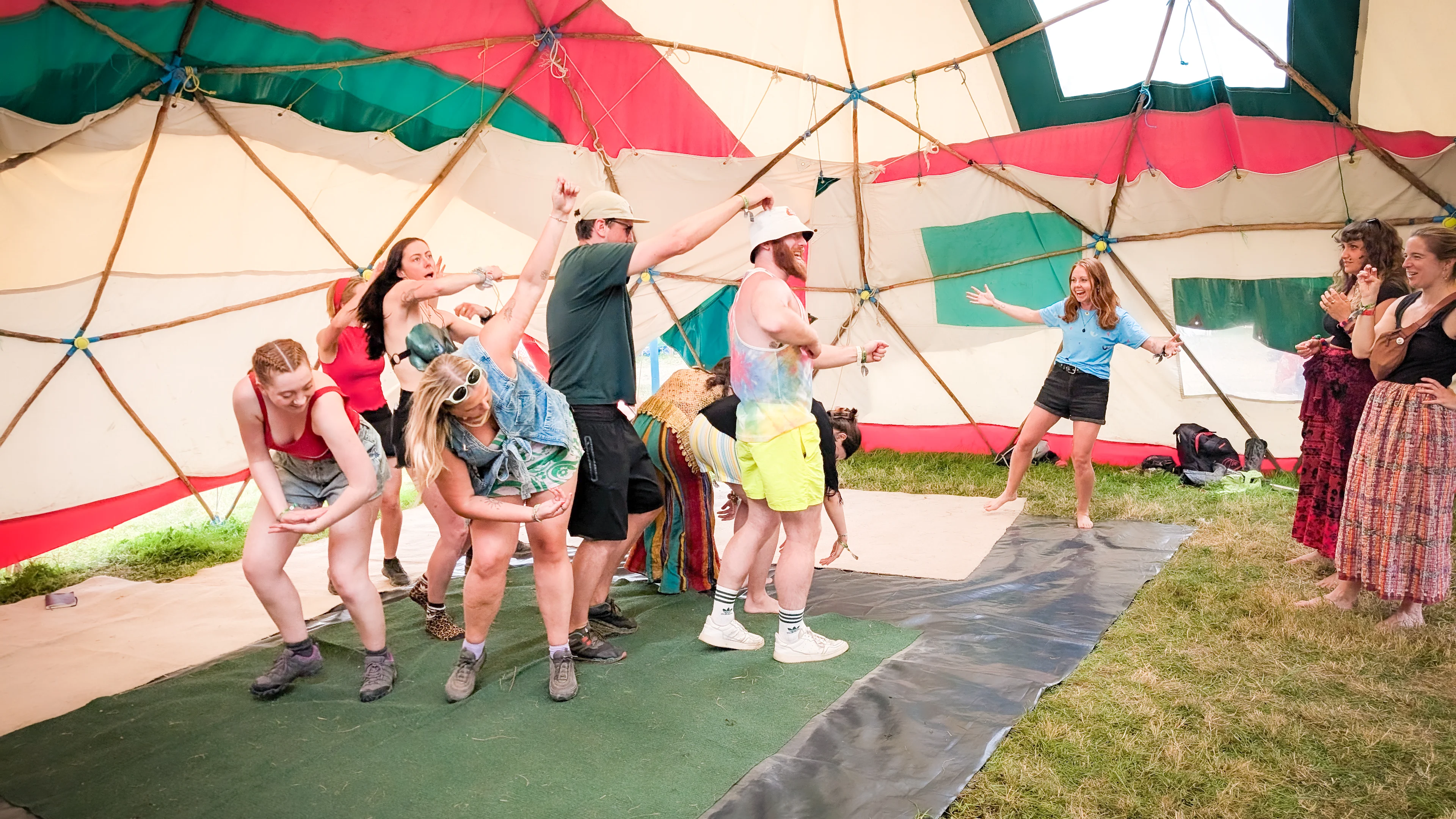
Embracing Play - A Workshop in Play
Theatre Deli, London
Learn More

by Viki Jackson
Instinctively, we all know what play is and the feeling of playfulness. But ask for a definition and you’ll receive a number of different responses ranging from playing games to feeling silly to freedom. That’s the beauty of play, it’s the feeling of it.
Play can be spontaneous or planned, competitive or cooperative, but in every case, it’s about being fully engaged in the moment, open to the joy of the process rather than the pressure of the outcome. It’s that mental state where you lose track of time, stop worrying about what others think, and allow yourself to experiment freely.
Some activities may initially sound playful, but it depends on the attitude you take to them. Let’s use rugby as our example. Whether you’re playing a casual game in the park or playing as a professional, the physical actions might be the same, but the experience of play could be different. The key isn’t whether you’re paid for it, but whether you’re engaging with it in a way that feels open, joyful, and exploratory. When you’re focused entirely on winning, playing becomes more about the outcome; driven by performance and external rewards. However, when you allow yourself to enjoy the process, experiment, and have fun with no concern for success or failure, that's the true spirit of play.
I see this in our workshops, when people stop worrying about getting things right and instead focus on having fun in the moment, they experience the magic of play. The play academics back up this thinking, they agree that play involves focus on the present and a “suspension of self-consciousness”. From an outside view we’re still doing the same activities but it’s looser, more enjoyable and has a different energy - playfulness.
Other activities don’t initially sound playful but again, it depends on your approach. Painting or walking or even exercising. If you take yourself too seriously and are so focussed on the end result it becomes stressful and not an enjoyable process. Approaching something with a sense of discovery and play keeps things fresh and light.
When I asked about play on social media (thank you everyone who responded), three themes stood out: freedom, non-judgment, and fun. These elements form the foundation for play to truly thrive. Try using them as a filter when approaching any activity: Can you let go of judgement, find more freedom, or infuse some fun?”
For a pure sense of play just look at a child playing. They’re immersed in the experience, caring more about this than the end result. They make mud-pies in the rain, draw endless crayon doodles for the sake of mark making, cook up dishes in their make believe kitchen all with a sense of wonder. They aren’t constrained by past experience or knowledge and their creativity and imagination can thrive. Who really knows that aeroplanes aren't held up by birds? Or a rubber doesn't turn back time to before you made that spelling mistake? Or even that a toaster is just a trading platform where gremlins swap your bread for toast. Anything is possible when you play like a child.
As adults it can be easy to lose touch with play. We get caught up with all our adult thinking and responsibilities, we jump from deadline to deadline, chore to chore and pick up stresses along the way. Embracing play, even in small ways, rekindles creativity, releases stress, and can help us feel more connected to ourselves and others. Next time you’re on your commute, tidying the house or taking a squeezed lunch break, ask yourself - can I make this more light hearted and curious? Playfulness is there waiting for you.
